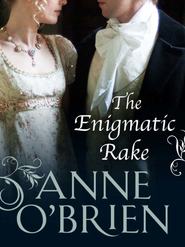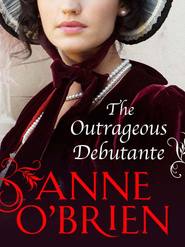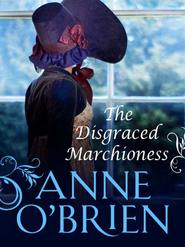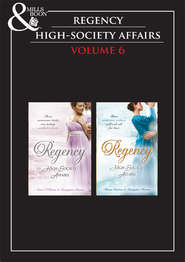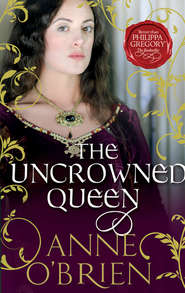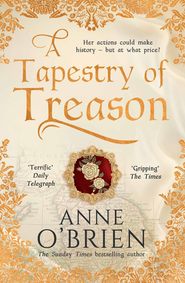По всем вопросам обращайтесь на: info@litportal.ru
(©) 2003-2025.
✖
The Scandalous Duchess
Настройки чтения
Размер шрифта
Высота строк
Поля
‘Did my discomfiture amuse you?’ I repeated.
He seemed to consider this for an inordinate length of time. Then, when his stare had disconcerted me so that my cheeks were flushed the pink of summer eglantine: ‘Amuse me?’ He shook his head, his mouth settling in a wry twist. ‘I was not amused at all.’ There was no laughter in him today, rather a lick of temper.
‘You laughed at me, my lord.’
‘Then I must ask your pardon, Lady Katherine.’ It did not sound like an apology. ‘If it was laughter, it was because it seemed to me impossible that it should happen twice in a lifetime.’
‘What should? What should not happen twice?’ I asked, as confused as ever, refusing to be intimidated by that penetrating regard.
His hand fell from the latch and he turned to face me fully as he lowered his voice. At least he had the consideration to do that.
‘That the woman at whose feet I would kneel in knightly adoration should refuse me outright.’
‘My lord…!’
I simply did not know how to respond as, cursed with fair skin, my face flamed even brighter. I was saved from further embarrassment only when William Parr pushed open the door to appear behind the Duke’s shoulder.
‘Your escort is ready, my lord,’ the squire advised.
‘One moment, if you will.’
But Will Parr, well used to the Duke’s manner, persisted. ‘Forgive me, my lord. A message has just been delivered, that the King too will travel to Kennington. He requests that you accompany him.’
‘Of course. I’ll come now.’
He held out his hand to me, the jewels stitched on the cuff of his glove glinting, leaving me with no response but to put my hand there on the costly leather. With a curt little bow, he touched his lips to my fingers.
‘It would be unforgivable of me to make you an object of mockery, Madame de Swynford. What it would please me to do is to put the light back into your eyes.’
And then I was left staring at his back.
He had made no decision on my future at all, and I had not asked him. How could I when he had clearly pushed me to the back of his busy mind? It might be a superbly romantic conception to serve me unto death, but only when the Duke considered that he had the time to encompass it.
We took the children to watch the departure from the steps that led down from the Great Hall into the inner courtyard. Since the Duke would travel by road to Westminster and then on from there to the Prince’s palace at Kennington south of the Thames, rather than travelling by river the whole way, the great portcullis had been raised. The gates were opened and the courtyard thronged with horses and liveried servants in the Lancaster colours of blue and white. I lifted Henry in my arms so that he could see the Duke swing into the saddle of his favourite bay stallion. The escort fell into formation.
Without doubt, even his critics must acknowledge that he was superb, that he wore the power that had been his from birth with smooth ownership, as elegantly as he wore the livery chain on his breast, and just as arrogantly, as now, when he raised his chin, lifting his hand in a peremptory gesture to summon one of his henchmen who moved smartly to obey. Too arrogant for many. The Duke made as many enemies as friends.
‘Did Duchess Blanche refuse to wed Lord John?’ I asked Lady Alice. It was time that I sought enlightenment from the best source. She would know, as a cousin to both the Duke and Blanche of Lancaster. I thought my query innocuous enough.
‘So they say.’ Lady Alice glanced in my direction but without suspicion.
‘I did not know. I was too young, I suppose.’
I had been sent, by Queen Philippa, to take up a position in Duchess Blanche’s household in the months following her marriage to the Duke, when I was barely ten years old. If there had been gossip, I had not understood the implications.
A blast of the horn from John Tyas, the herald suitably puffed-up in Lancaster livery, a nod from the Duke and they rode out, stillness finally settling round us. So Blanche had initially repulsed him. But the Duke had obviously refused to take no for an answer from the woman he had loved. He had persisted, wooed her and won her.
But why had he placed me beside Duchess Blanche? He clearly did not love me in the same overwhelming manner. Lust, perhaps. Were not all men subject to bouts of uncontrolled desire?
‘Why would any woman refuse to wed him?’ Lady Alice mused, picking up the conversation as if there had been no hiatus—something she often did. ‘It seems to me that he has every prerequisite for a husband. Exceptional features, grace, nobility, courtesy…as well as wealth and royal blood and all that implies.’ There appeared the faintest sneer on her lips. ‘Constanza of Castile was quick to take up the offer.’
‘So why did she?’
‘Because Constanza wants the Duke to win back Castile for her and—’
‘Not Constanza. Why did Lady Blanche refuse?’
‘Who’s to say?’ Lady Alice grasped Elizabeth’s hand, to prevent an attempt at escape. ‘It’s said the Duke fell in love with her when they were both children, and he remained true until the day she died.’
I knew that. I remembered her death, with the Duke at her bedside, stricken with grief. I remembered him at her lying-in-state in St Albans Abbey when he could do nothing but stare blindly at the seated wooden effigy of the Duchess, clad in robes of state, the painted face uncannily lifelike.
‘It was a day of heartbreak for everyone,’ I murmured. I had adored Duchess Blanche. Did not everyone who knew her?
‘I think perhaps Blanche did not believe him, when he first declared his love,’ Lady Alice continued. ‘She thought it was no more than a comfortable childhood friendship on his part, and she wanted more. She made him wait, and woo her in style. And then, when she was certain of his affections, she said yes, for she loved him, without any doubt…’
‘Is it useful to make a man wait?’ Alyne asked.
‘Why not? If his love is true…’ Lady Alice said.
‘I have no experience of it.’ Alyne sighed dolefully.
‘Nor I.’ Like Alyne’s, my own marriage had been arranged. I had not had the choice to refuse or keep Hugh dangling on a bodice-lace as Blanche had done with the Duke. How empowering it must be to be so certain of the love of the man held close in your own heart. So certain that not even a self-imposed absence could destroy it.
If I had loved Duchess Blanche, I had envied her too.
Lady Alice sighed, nostalgia making lines across her brow. ‘They were the perfect couple. How tragic that she should die so young.’ The lines deepened. ‘We’ll see what Constanza of Castile is made of. Will she be able to win his affection, do you suppose?’
‘Perhaps she already has,’ I suggested. ‘She carries his child.’
‘We’ll see…’
I looked round, counting the number of nursemaids who hovered in the background, ready for any demand on their services should Lady Alice or Alyne call on them. The children were well served, well educated under Lady Alice’s hand. The new Duchess would bring her own women from Castile. How could I possibly think there would be a place for me here? And as things stood it would be better for me if I were not…
I made my decision. I would return to Kettlethorpe, a most sensible course of action that would shield me from any future enticement. The Duke would build a new marriage with his foreign bride, he would forget me—had he not already done so?—and I would be free to oversee the construction of the best memorial I could accomplish for Hugh. I would administer his estates to the best of my ability so that my son might inherit a property of some value.
I nodded, my mind made up. It was a good end to my visit. An entirely suitable end.
I wished I felt more enthusiastic about it. I wished I could tear those words from my thoughts but they clung there, like stubborn autumn leaves resisting all the efforts of a winter gale to scatter them.
…the woman at whose feet I would kneel…
Such sentiments might be those the Duke recalled from the initial days of his wooing of lovely Blanche to be his wife. He had loved Blanche. He did not love me. Such sentiments had nothing to do with me, who would be no better than a court whore if I complied.
I took the first opportunity offered to travel north—running away, if I were honest. With my maid, my groom and a manservant from Kettlethorpe who served as protection, I joined up with a group of hardy pilgrims intent on journeying to pray at the tomb of St John of Beverley. It was not the season for pilgrimages, the winter days being short and the weather chancy, but the air was clear and crisp, the ground hard with frost and the road surfaces better than the soft mire of spring.
I was pleased to be on the move. Lady Alice begged me to stay, not understanding my determination, but to what end? I thought it best to be absent when the Duke returned and his new lady was ensconced at The Savoy.
We travelled slowly and steadily, putting up at inns as we followed the straight line of Ermine Street, the old Roman road, before turning east at Newark along Fosse Way. Now the scenery, the flat open expanses, became familiar to me, and when we crossed the Trent—looking innocent between its icy banks but the cause of many of my problems at Kettlethorpe—I knew that I was almost home. And there was the vast bulk of the cathedral at Lincoln, the two magnificent towers emerging out of the distance like a ship looming out of mist at sea.






